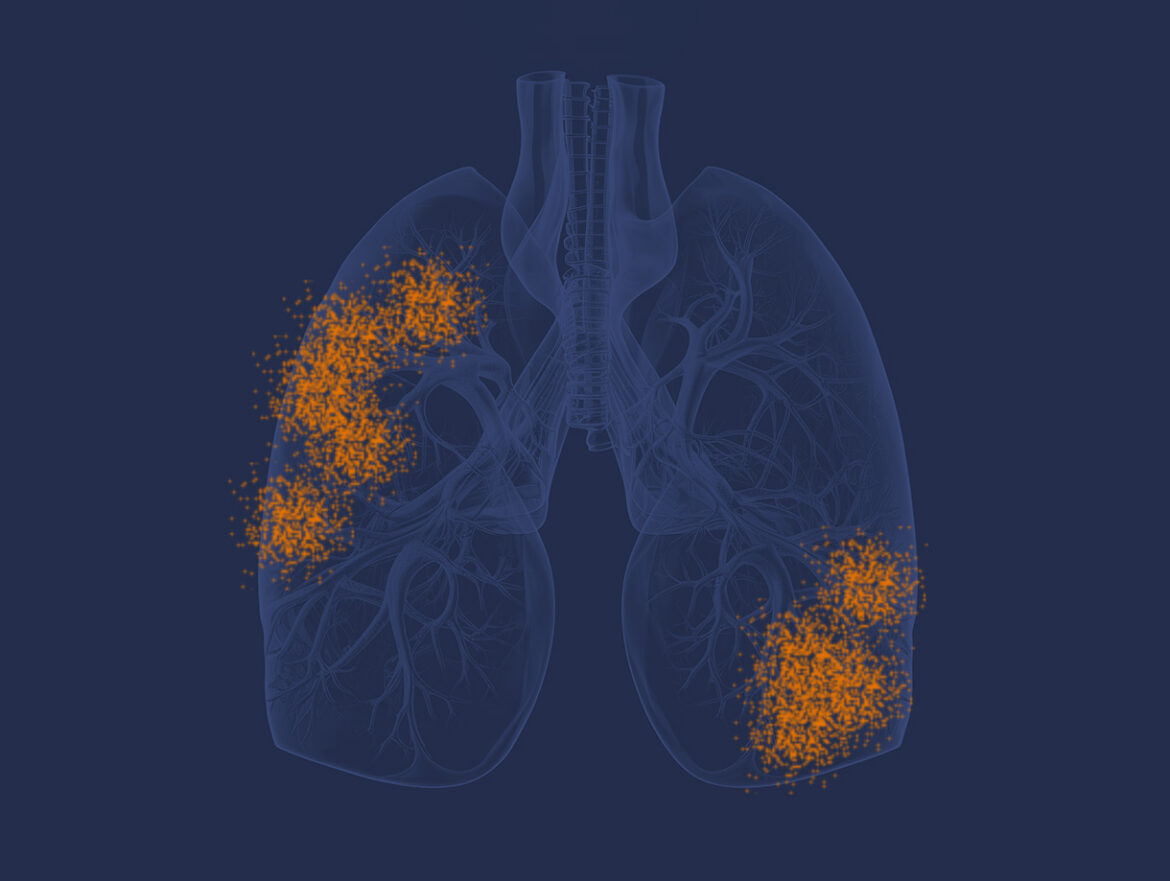With mesothelioma, early detection and proper diagnosis can significantly impact patients’ lives. Medical imaging provides faster diagnoses and aids in more precise care for rare cancers and diseases. At UVA Radiology and Medical Imaging, we encourage you to look for the warning signs of mesothelioma and to take a proactive role in getting screened.
A “Hiding” Cancer
Malignant mesothelioma is a type of cancer that affects the tissue that lines your lungs, heart, stomach, and other organs. While the exact cause of mesothelioma is unknown, the primary risk factor is exposure to asbestos fibers. Asbestos is a material found naturally in the environment, and is used in many products such as shingles, insulation, flooring, brakes, and more. This substance can irritate the lining of organs when inhaled or ingested.
Mesothelioma and other rare diseases are often difficult to diagnose because of the way they “hide.” They often lurk behind symptoms like coughing or fatigue that might suggest a more common, less dangerous disease. This camouflage is dangerous because early detection is vital when it comes to treating a mesothelioma.
Unfortunately, people rarely realize they have been exposed to microscopic asbestos fibers, whether at work, during home renovations, or even accidentally at points in their life. Therefore, it is important that the public know the risks of asbestos exposure, & to tell their doctors if they are at increased risk.
Mesothelioma can take 20 to 50 years to show itself after first exposure to asbestos! In fact, stage 1 of mesothelioma does not usually present symptoms. This is why it is extremely important to inform your doctor if you think you may have been exposed to asbestos, and consider looking into screening options for early detection and treatment. As with most aggressive cancers, catching mesothelioma in its early stages is crucial to provide patients the time to explore available treatment options.
Medical Imaging: Finding Mesothelioma
Doctors will often use a three-pronged approach when it comes to diagnosing mesothelioma. Generally, some form of medical imaging is the first exam ordered. After this, a doctor may order follow-up blood work or a biopsy. Lastly, mesothelioma specialists may look into further diagnostic testing and scans necessary for advanced care options.
As mentioned above, medical imaging is usually the first step taken in diagnosing mesothelioma. Look over the different types of imaging to better understand what exam your doctor may order for you. As with so much of modern medicine, imaging is on the front lines of your treatment as the first step in the process of diagnosis.
While imaging cannot completely determine whether or not you have mesothelioma, it can be the key to starting the early detection process. If mesothelioma is found in stage 1, more curative treatment options are available because tumors are localized to one area.
At UVA Radiology and Medical Imaging, we want you to know the signs of mesothelioma and think proactively! An imaging exam today could change your life. For more about symptoms and treatment of mesothelioma at UVA, click here.



